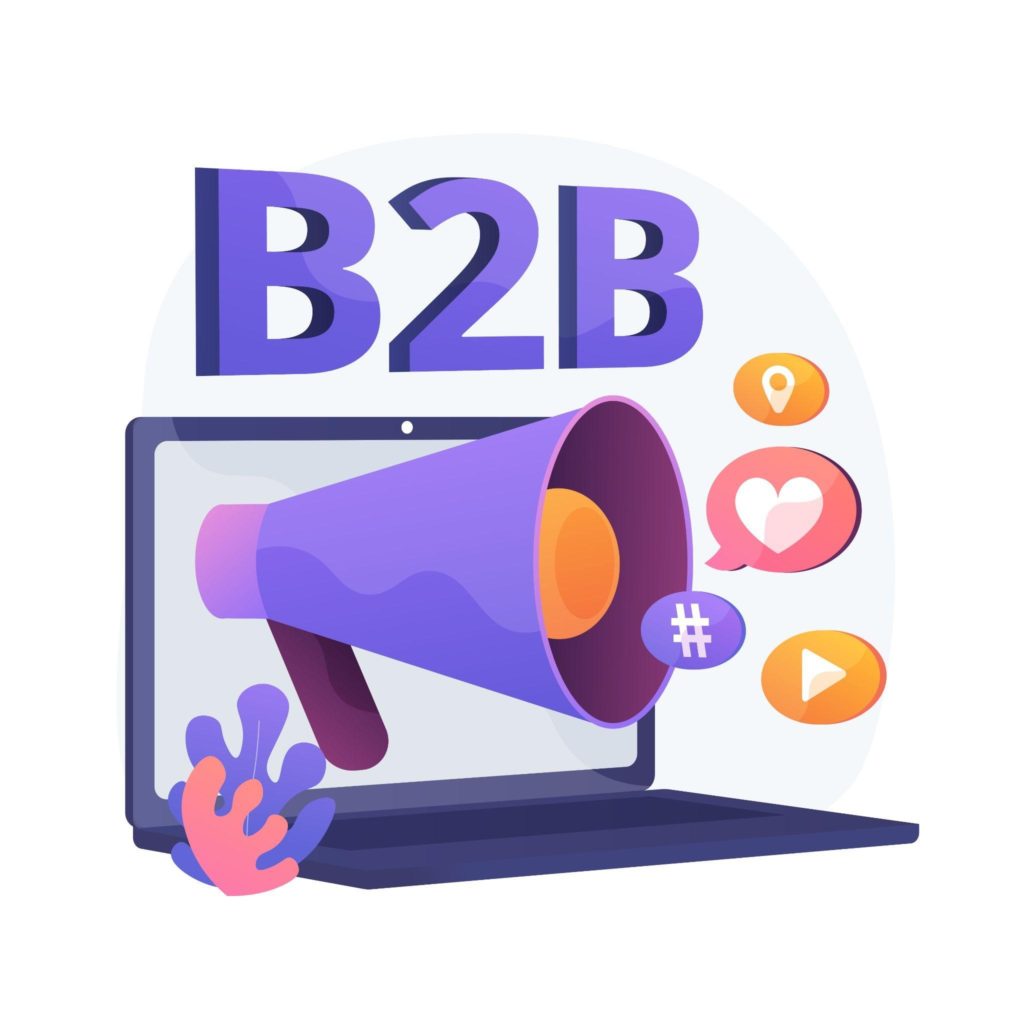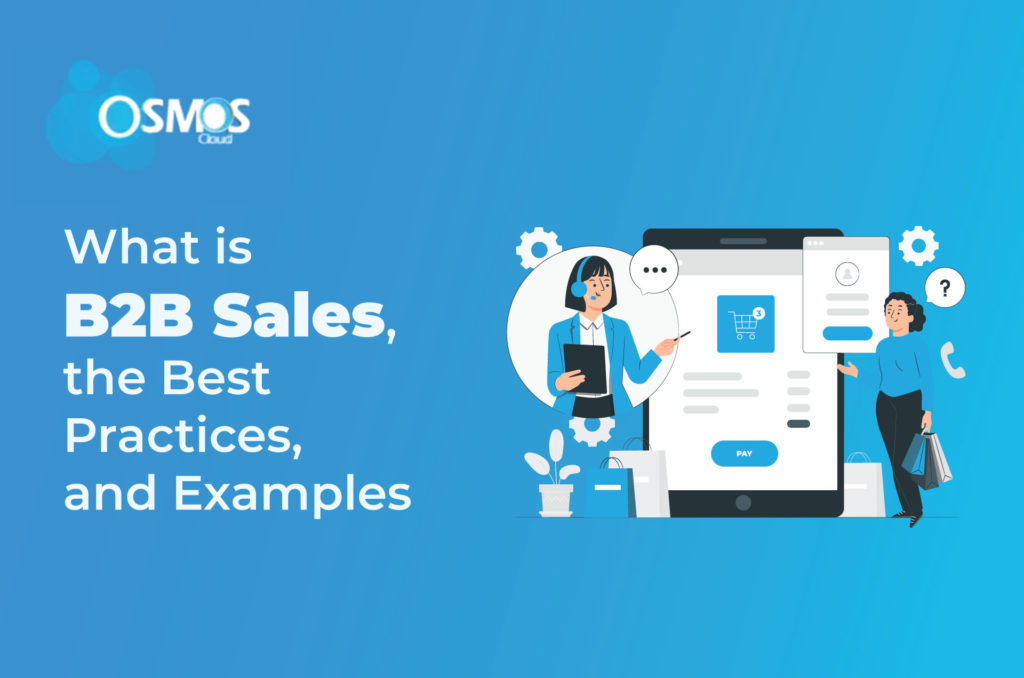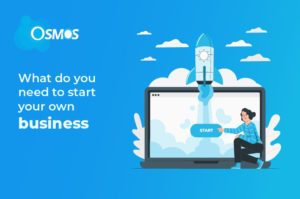Discover the best practices and examples of B2B sales to help businesses succeed. This article will overview B2B sales, its advantages, and how to develop a successful approach.
B2B sales can be a challenging and rewarding field, and it’s important to approach it with a strategic mindset. By understanding your target market, building relationships, focusing on value, being prepared, using technology, following up, and being patient, you’ll be well on your way to success.
The B2B sales best practices involve:
- Developing strong customer relationships
- Providing value through personalized products and services
- Developing an effective marketing strategy.
By following these best practices, companies can make their B2B sales strategies successful and profitable. Focusing on customer satisfaction and building customer relationships are also a key to help companies succeed in B2B sales.
Overview Of B2B Sales
B2B sales are becoming important in today’s business world as companies look to establish long-term partnerships with other relevant businesses. But what exactly is B2B sales, and what are B2B sales best practices for best results? Let’s find out!
This article will explore the basics of B2B sales, including the key differences between B2B and B2C sales, and provide examples of B2B sales.
What is B2B (Business to Business) Sales?
B2B (Business-to-Business) sales refer to selling products or services to other businesses or organizations. B2B sales often require more customization and a deep understanding of the customer’s business needs.

Examples of B2B sales include a software company selling its products to a large corporation or a consulting firm providing services to a government agency.
The Difference Between B2B Sales & B2C Sales
B2B sales refer to selling products or services to other businesses, while B2C sales refer to selling products or services to individual consumers. The main difference between the two is the targetted sector.
B2B sales typically involve more complex products or services and longer sales cycles. This happens because businesses make decisions more cautiously and require more information before they buy.
On the other hand, B2C sales typically involve simpler products or services and shorter sales cycles, as individual consumers tend to make purchases based on personal preference and convenience. Additionally, B2B sales involve larger transaction values, while B2C sales tend to be smaller.
B2B Sales Strategies
B2B sales strategies refer to the strategies used by businesses to sell their products and services to other businesses. These strategies are designed to optimize sales effectiveness, increase customer satisfaction, and drive revenue growth.
B2B Sales Strategies involve understanding the needs of potential customers, researching effective approaches for meeting those needs, creating compelling marketing messages, and executing efficient sales processes.

They may also involve developing relationships with key decision-makers and cultivating a sales team that is knowledgeable and well-trained. Examples of B2B Sales Strategies include:
Lead Generation
This strategy involves identifying and targeting potential customers interested in your product or service. This can be done through various methods, such as market research, online advertising, and networking events.
Once potential customers have been identified, they can be contacted and nurtured through the sales process.
Account-Based Marketing
This strategy focuses on specific accounts or companies rather than individual leads. It involves creating targeted campaigns and personalized messaging that addresses the targeted accounts’ specific needs and pain points. This approach is often used for larger, enterprise-level sales.
Solution Selling
This strategy focuses on selling a solution to a customer’s problem rather than just a product or service. It involves understanding the customer’s needs and pain points and creating a customized solution that addresses those specific issues. This approach is often used in consultative selling.
Inbound Marketing
This strategy focuses on creating content that attracts potential customers to your company rather than actively seeking them out. This can be done through various methods, such as blogging, social media, and search engine optimization (SEO).
The goal is to establish your company as a thought leader in your industry and building trust with potential customers.
Channel Sales
This strategy involves partnering with other companies or individuals to sell your product or service. This can be done through various channels, such as resellers, distributors, and affiliates.
Channel partners can help to expand your reach and bring in new customers, but it’s important to carefully choose and manage these partners to ensure they are a good fit for your company.
Foundations Of B2B Sales
Here are some of the foundations of effective B2B Sales Strategies:
- It is critical to know your customers and prospects, understand their needs and preferences, and tailor solutions to meet those needs.
- Creating value propositions that demonstrate clear benefits to customers can help drive sales.
- Knowing when, how, and with whom to close the deal is essential to achieve sales goals. A clear understanding of the different stages of the sales process, such as prospecting, qualifying, and closing, will help ensure success.
11 Best B2B Sales Best Practices
B2B sales is a complex process and require dedicated efforts from the sales team. The best B2B sales strategies are effective in helping businesses reach their goals. Here are eleven of the B2B sales best practices that can help sales reps optimize their performance:
1. Relationship Building
When it comes to B2B sales, relationship building is key. Developing a strong rapport with customers enables sales reps to build trust, create loyalty and ultimately result in more consistent and reliable sales.
Through engaging conversations that show clients they are valued and understood, reps can lay the groundwork for long-term relationships. Additionally, utilizing customer feedback to refine products, services and experiences is an important part of the relationship cultivation process.
By listening to customers and responding quickly to their needs, sales reps can create a mutually beneficial relationship that helps both parties succeed. Additionally, by staying up-to-date on industry trends and market changes, sales reps can keep conversations current and relevant, further solidifying relationships.
2. Content Marketing
Content marketing is a powerful tool for B2B sales teams. It allows them to create and distribute helpful, relevant, and engaging content to inform potential buyers.
Such content can range from informative articles and blog posts to videos or podcasts. By demonstrating expertise on a given topic, sales reps can build customer trust and stay top-of-mind.
3. Account-Based Marketing (ABM)
Account-based marketing (ABM) is an effective sales strategy for B2B companies. It involves targeting campaigns to specific accounts or prospects with personalized messaging. ABM aims to build stronger relationships with key customers and influencers, leading to better sales results.
ABM campaigns typically focus on creating personalized experiences for each customer, such as tailored content and offers. By leveraging the data available, sales reps can craft highly relevant messages and drive better results.
Additionally, ABM allows sales teams to track their efforts’ progress and measure their campaign’s success. This provides valuable insights that can be used to optimize future campaigns and maximize sales performance.
4. Social Selling
Social selling effectively reaches customers and engages them in meaningful conversations about their needs. By leveraging social media platforms such as LinkedIn, Twitter, and Facebook, sales reps can engage potential buyers early in the process and build relationships that are more likely to lead to deals.
Through social selling, sales reps can quickly identify the right contacts, find out more about their interests and establish a personal connection with them.
5. Automation
Automation is essential for B2B sales teams to increase efficiency and accuracy. By automating mundane tasks, such as lead scoring, follow-up emails, and generating customer data reports, sales reps can save valuable time that can be redirected to more important activities, such as personalizing their interactions with customers and deepening relationships.
Automating sales processes can also help teams ensure data collection and analysis accuracy and that nothing is overlooked or forgotten.
6. Personalisation
Personalization is a key component of any successful B2B sales strategy. By taking the time to understand their customers, sales reps can create an individualized experience tailored to their specific needs and preferences.
Personalization can also help sales reps build customer trust and establish long-term relationships. Learning about the customer’s business objectives and challenges is essential for developing personalized solutions to keep them coming back.
7. Lead Scoring
Lead scoring is an effective strategy to prioritize leads based on their conversion likelihood. By assessing the interests and behaviors of leads, sales reps can focus their efforts on those most likely to buy.
8. Data-Driven Approach
Making decisions based on data is an important part of successful B2B sales. By leveraging customer data, sales reps can create more targeted campaigns and optimize their strategy for better results.
9. Value Selling
Rather than simply focusing on price, B2B sales reps should emphasize value to their customers. By emphasizing the product’s or service’s benefits and value, sales reps can create a more compelling case for purchasing.
10. Referrals
Word-of-mouth referrals are an effective way to generate leads and close more sales. By asking current customers for referrals, B2B sales reps can access new prospects with a positive impression of the product or service.
11. Networking
Networking is one of the most important B2B sales strategies to help reps connect and establish relationships. By attending events, joining professional organizations, and leveraging social media networks, sales teams can expand their reach and meet potential buyers.
These are just some of the best B2B sales strategies to help businesses drive more revenue and increase customer satisfaction. By taking the time to understand each strategy and how it could benefit their business, sales reps can optimize their performance and become more successful.
With the right combination of strategies, B2B sales teams can gain a competitive edge in the market and experience greater success.
5 Examples of B2B Sales
There are many ways to sell products and services in the B2B market, all of which vary depending on the industry, target audience, and objectives. Here are five examples of B2B sales that have proven successful for companies around the world:
1. Telemarketing
One of the most popular ways to reach potential clients in the B2B sales market is through telemarketing, which involves making phone calls or sending text messages to prospective buyers.
This method lets companies quickly get a hold of their prospects and develop relationships with them. Additionally, it’s cost-effective, as there’s no need to travel or invest in advertising.
2. Account Management
Another successful B2B sales approach is account management, where companies assign an individual salesperson to handle all sales-related customer interactions. This allows for targeted communication and personalized service that helps build long-lasting relationships with customers.
3. Consultative Selling
Consultative selling is about understanding the customer’s needs, then using that knowledge to provide tailored solutions. This approach requires salespeople to develop a close relationship with their prospects by listening closely, asking relevant questions, and responding thoughtfully.
4. Strategic Partnerships
Strategic partnerships are an effective way to expand a company’s reach and increase sales opportunities. Companies can partner with other businesses to develop promotional materials, cross-sell their services, or offer discounts to customers.
5. Cross-selling
Cross-selling is another B2B sales approach that allows companies to maximize revenue by selling related products and services in addition to the ones their customers have already purchased. This allows them to upsell their current customers and improve customer loyalty.
These five examples of B2B sales all require different techniques, but they share one common goal: increasing sales. Companies must implement best practices and stay on top of industry trends to achieve success in this area.
Final Thoughts
In conclusion, B2B sales is a complex and dynamic field that requires a strategic approach and a focus on building relationships, providing value, and continuously improving your skills.
By following these best practices and continuously learning and growing, you’ll be well on your way to success in B2B sales.








